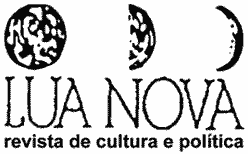Abstract
The purpose of this article is to analyze the role of Mercosur for Brazilian foreign policy from 1991 to 2021. We will argue that there is a path of gradual loss of centrality by the bloc for Brazilian foreign policy and a reduction in the levels of trade. Thus, the decline in the bloc’s priority for Brazil, observed in Temer and Bolsonaro administrations, cannot be examined without referencing difficulties that had already manifested in previous governments, in fact since 1995, although with different characteristics. During these thirty years, Brazilian business and political elites have not maintained the same interest in integration. Likewise, the transformations of the international system and the evolution that they produced in the perception of the elites regarding the role that Brazil should play in the world were not absorbed as systemic incentives for the deepening of regional integration. The bloc celebrates its 30th anniversary demonstrating an important resilience, despite the context of lesser engagement of the countries, the accumulated effects of successive political and trade crises and the diminishing economic importance in relation to other extra-bloc partners, factors that raise important questions in relation to its future.
Keywords:
Brazilian Foreign Policy; Mercosur; Regional Integration

 Thumbnail
Thumbnail
 Thumbnail
Thumbnail
 Thumbnail
Thumbnail
 Thumbnail
Thumbnail
 Fonte: Elaboração própria, com base em dados do Ministério da Indústria, Comércio Exterior e Serviços (
Fonte: Elaboração própria, com base em dados do Ministério da Indústria, Comércio Exterior e Serviços ( Fonte: Elaboração própria a partir de dados do MDIC e Banco Central.
Fonte: Elaboração própria a partir de dados do MDIC e Banco Central.
 Fonte: Elaboração própria a partir de dados do Comtrade (
Fonte: Elaboração própria a partir de dados do Comtrade ( Fonte: Elaboração própria, com base em dados do Comtrade (
Fonte: Elaboração própria, com base em dados do Comtrade (